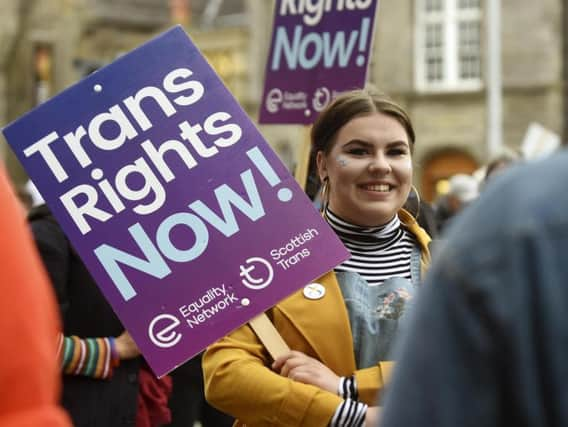Academics criticise Scotland's 2021 census for allowing sex to be self-identified


Census bosses have been accused of 'conflating' sex and gender by academics.National Records of Scotland (NRS) outlined the proposals for census participants in 2021 to 'self identify' as male or female, rather than declaring their legal sex.
A move for a third option, to identify as other than male or female, was proposed but later scrapped.
Advertisement
Hide AdAdvertisement
Hide AdBut the proposal for guidance accompanying the census to 'self identify' has been slated by 80 academics and statisticians who raised concerns that sex and gender have been 'conflated'.
It has been described as posing 'risks' to the accuracy of data collected.
Criminologist and policy analyst Dr Kath Murray, said: "The proposed question and guidance carries risks in terms of data reliability and consistency over time, as well as equalities monitoring.
"It is particularly concerning that officials have ignored the advice of 80 of the UK's most eminent academics, working in relevant disciplines, who have called on the census authorities 'to retain the integrity of the category of sex, and not to conflate this with gender identity'".
A letter from 80 academics, which was sent to the directors of the three UK census authorities, as well as Boris Johnson and Nicola Sturgeon, said the online guidance issued on the sex question in the 2011 census should not be seen as a precedent.
It added: "The introduction of guidance in 2011 was not subjected to a full consultation with data users, nor was an equality impact assessment undertaken."
It raised concerns that the shift to a "digital-first" census in 2021 "means that any proposed guidance will be much more visible and accessible, compared to the 2011 census (which was predominantly paper based, with separate online guidance)".
However, the signatories welcomed a new, voluntary question on gender identity in the 2021 census in England, Wales, and Scotland.
Advertisement
Hide AdAdvertisement
Hide AdThe NRS said a study showed most people will not consider guidance prior to answering the sex question.
Its report stated: "The basis on which they answer is therefore not explicitly defined and therefore NRS take the position that self-identification captures the reality of how people complete this census question."
It said research indicated three times as many trans and non-binary Scots - who identify as neither male nor female - would be willing to answer a sex question with self-identification guidance than with legal sex guidance.
The report added: "A binary sex question with self-identification guidance therefore supports participation for all people with the census and clarifies to data providers and data users the basis of the question."
Proposed guidance to accompany the sex question in the 2021 census reads: "If you are transgender the answer you give can be different from what is on your birth certificate.
"You don't need a Gender Recognition Certificate."
A NRS spokeswoman said the final decisions on Scotland's 2021 census questions would be made by Holyrood next year.